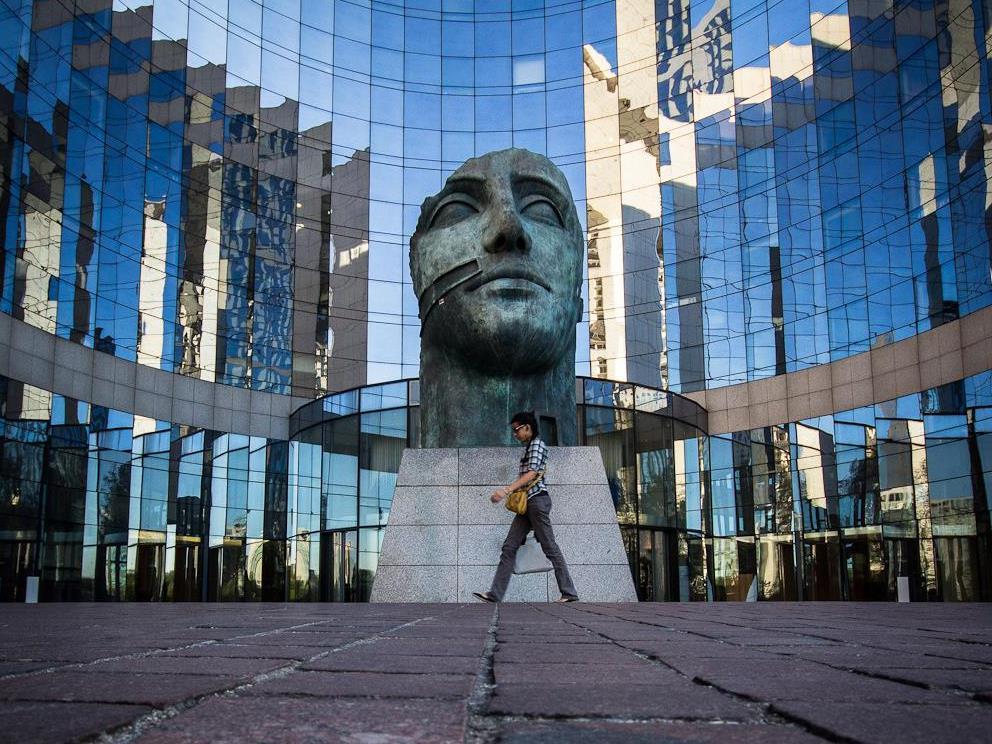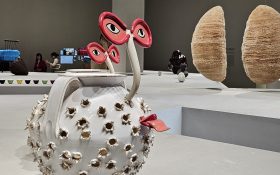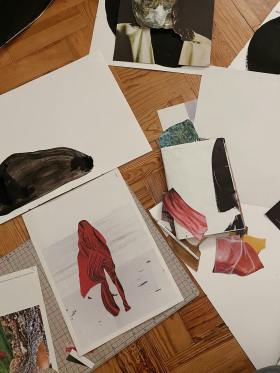What is the difference between those in the arts business and the artists themselves? Franck Vervial. Image via Creative Commons
‘To me all arts workers are artists… creative in their specialist field.’
These words arrive in an email to me from a senior arts management figure. We have known of each other for about 20 years but we’ve never worked in the same room. The statement starts me thinking. If this is how she describes the relationship… Are we even in the same business?
I work in theatre. This is one of the few industries where free-range job descriptions are becoming acceptable. Most other industries have demarcations of who does what and how and why in order to produce a profit. We kind of ignore the need for definition and want everybody to feel part of the process. The trouble with this is that the lines start to blur. People can then forget who does what and how and ignore the expertise.
The manager who sent the email is currently employed in an arts organisation that does not include word ‘artist’ or ‘arts’ or ‘artistic’ on their organisational chart. If art is the source of their profit, why has the artist left the building? Has the business changed so much in the last twenty years that the artist has become irrelevant?
My first mentor in this business is a man known affectionately to many as ‘Robbo’. Ian Roberts originally trained as an actor, got a few jobs but then shifted gear. Robbo says he knew he was in the right industry but like any good manager, he identified that he was addressing the wrong position description.
‘The emotional and psychological cost of getting onto the stage just made it not worthwhile.’
He re-assigned himself to management and carved out a career. He is a forthright man, and so when I asked him if he thought all arts workers were artists he provided a typically unambiguous response.
‘It’s patently ridiculous to call all arts workers artists,’ he chortled. ‘But if you have arts workers who are creative then they can create wonderful opportunities for artists. The qualities of that relationship are the most important thing.’
Relationships are big with Robbo. He is the former General Manager of GPAC and the Melbourne International Festival of the Arts; he has been around the block.
Dino Dimitriadis is the Artistic Director of Apocalypse Theatre. He is a proactive emerging talent. Dino has crowd funded productions of Australian plays and in many ways he reminds me of a 21st Century version of Ian. Dino works in the theatre business on both sides of the desk. His current day job is Artist and Venue Liaison for the Sydney Fringe Festival.
‘There are artists and arts administrators,’ he says. ‘In many cases, artists are administrators due to the few paid creative opportunities and the realpolitik of arts leadership.’
This assertion reflects the reality that in theatre, it is the artist (as opposed to the arts worker) who rarely finds full time continuous work. We develop transferrable skills to fill the gaps. Directors work as Producers. Actors work in retail and hospitality. Playwrights in journalism and television – we cobble careers together, we move on and off the grid but Dino constrains his definition of ‘an artist’ to someone who is practicing.
‘It’s important not to dilute the term when practising artists haven’t been afforded the recognition and opportunities they have earned.’
Alison Croggon is this country’s foremost theatre critic. She is also a poet and a librettist. Alison knows that indie theatre would not exist if artists were not prepared to be flexible with job descriptions. Her view is cut and dried.
‘All artists are arts workers, but not all arts workers are artists.’
Management in main stage companies have security; they have on-going work, they have sick leave and time in lieu and super. The artists who bring the work to the companies don’t. In fact, artists are functioning as small businesses. Contractors with no sick leave, no time in lieu and often with no superannuation but providing an essential product. The art.
The Australian theatre industry is a vastly different collective to the one that existed when Robbo was starting out. Federal, State and Local government have Arts Departments now. They employ full time arts workers with career paths and KPIs. Last year Arts Victoria introduced the word ‘investment’ to replace the word ‘funding’ in application templates. In the current political climate it is difficult to understand how an arts organisation can continue to receive State, Federal and Local arts investment without at least including the word ‘Artist’ or Artistic’ in any of their job descriptions. But it’s happening.
Between 2011 and 2014 I was employed as Artistic Director of Courthouse ARTS. In that time I created employment opportunities for artists. I initiated their first Associate Artist scheme, their first Curatorial position, a Director of Skills Development position and an Arts Advisory Panel. I wrote the Artistic Program that was successful in obtaining triennial investment from Arts Victoria and the Australia Council for the Arts.
The word ‘ARTS’ still sits in capital letters in their branding, and they are still in receipt of the funding. But today Courthouse ARTS does not incorporate the word ‘Arts’ or ‘Artist’ ‘Artistic’ in any of their job titles. The Board has chosen the words ‘Creative’ and ‘Co-ordinator’ instead.
It is this kind of devolution that allows managers to think arts workers are artists. But they’re not. They’re different. They have to be.





